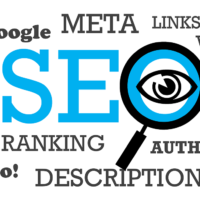Web scraping has become an indispensable method for gathering information from online sources in an automated way. Businesses rely on it to monitor competitors, track market trends, and collect large datasets for analysis. Individuals use it for personal projects, such as building custom databases or automating research tasks. This guide explores the fundamentals, providing practical steps to get started while emphasizing responsible practices to avoid common pitfalls.
At its core, the process involves sending requests to websites, parsing the returned content, and extracting specific elements like text, images, or links. With the right approach, anyone can harness this technique to transform unstructured online data into valuable insights. However, success depends on understanding both technical aspects and broader implications, ensuring your efforts yield reliable results without unnecessary complications.
Whether you’re a beginner looking to experiment or a professional seeking to refine your methods, mastering this skill opens up endless possibilities. From e-commerce pricing comparisons to academic research, the applications are vast and varied. By following structured steps, you can build efficient systems that save time and resources, turning manual data collection into a seamless automated workflow.
Before diving into implementation, it’s crucial to grasp why this method is so powerful in today’s data-driven world. Websites host immense amounts of publicly available information, but manually copying it is inefficient for large-scale needs. Automation bridges this gap, allowing for rapid collection while maintaining accuracy through programmed logic.
Fundamentals of Data Extraction from Websites
The basic mechanism relies on HTTP requests to fetch page content, followed by parsing to isolate desired elements. Tools like browsers’ developer consoles help inspect structures, revealing how data is organized within HTML tags. This foundational knowledge enables precise targeting, reducing errors in your collection efforts.
Common challenges include dynamic content loaded via JavaScript, which requires advanced handling beyond simple requests. Anti-bot measures on sites can block automated access, necessitating strategies like rotating user agents or adding delays. Overcoming these hurdles ensures consistent performance across different targets.
Selecting appropriate targets involves evaluating site policies and data availability. Public directories or news portals often provide rich sources without restrictions, while e-commerce platforms might require careful navigation. Always prioritize sites that allow such activities to maintain ethical standards.
Key Components of a Scraping System
A robust setup includes a request handler to simulate browser interactions, a parser to navigate document structures, and a storage mechanism for output. Integrating error handling prevents crashes from unexpected changes in site layouts. Logging features track progress and identify issues during runs.
Scalability considerations involve managing multiple simultaneous connections without overwhelming servers. Queue systems organize tasks, while proxies distribute traffic to avoid detection. These elements combine to create reliable, high-volume operations suitable for ongoing use.
Legal and Ethical Guidelines for Responsible Practices
Compliance with regulations forms the backbone of sustainable operations. Review target sites’ terms of service to identify permitted uses and restrictions. International laws like GDPR influence how personal information is handled, even in public contexts.
Ethical approaches focus on minimizing impact, such as limiting request frequency to avoid server strain. Attribution when using collected information builds trust and respects content creators. Transparency in your intentions helps differentiate legitimate uses from malicious ones.
Avoid sensitive areas like protected intellectual property or private user data. When in doubt, seek permissions or use official APIs where available. These steps protect against potential legal repercussions while promoting fair use.
Navigating Common Restrictions
Many sites employ robots.txt files to indicate crawl preferences; respecting these demonstrates good faith. IP rate limiting can be mitigated through distributed access points. Understanding these barriers allows for adaptive strategies that maintain access without violations.
Essential Tools and Libraries for Beginners
Python remains a top choice due to its simplicity and extensive ecosystem. Libraries like Requests handle HTTP communications efficiently, while BeautifulSoup excels at parsing HTML. For more complex scenarios, Selenium automates browser interactions to manage dynamic elements.
No-code platforms offer alternatives for those avoiding programming, with visual interfaces to configure extraction rules. Cloud-based services provide scalable infrastructure, managing proxies and storage automatically. These options lower entry barriers for quick projects.
Version control tools like Git track changes in your scripts, facilitating collaboration or revisions. Integrated development environments enhance productivity with debugging features. Building a toolkit tailored to your needs accelerates development cycles.
Comparing Popular Frameworks
- Scrapy offers powerful crawling capabilities for large-scale operations. It handles pagination and follows links automatically, making it ideal for comprehensive site mapping. Its middleware system allows custom extensions for specific requirements.
- Playwright provides cross-browser automation with modern features. It supports headless mode for efficient running and captures screenshots for verification. This tool shines in scenarios requiring JavaScript execution.
- Puppeteer focuses on Chrome-based interactions with fine-grained control. It enables network interception to monitor requests and responses. Developers appreciate its speed and reliability for testing purposes.
- Cheerio delivers fast, jQuery-like parsing for server-side use. It processes HTML without a full browser, reducing resource consumption. Perfect for lightweight extractions from static pages.
- Octoparse combines visual configuration with cloud execution. It handles login-protected areas and exports data in various formats. Suited for users preferring minimal coding involvement.
- ParseHub features point-and-click selection for elements. It manages multi-page workflows and schedules runs automatically. This makes it accessible for non-technical users tackling complex structures.
- Apify provides actor-based architecture for reusable components. It integrates with storage solutions and offers marketplace for pre-built solutions. Excellent for building modular systems.
- Dexi.io emphasizes real-time monitoring with alert systems. It supports API integrations and custom scripting when needed. Businesses use it for ongoing data feeds.
Step-by-Step Process for Your First Project
Begin by identifying your target site and specific data points of interest. Analyze the page structure using browser tools to locate elements. Plan your script’s logic, including error handling for potential issues.
Install necessary libraries via package managers like pip. Write code to send a GET request and check the response status. Parse the content to extract targeted sections, storing results in variables.
Test on a single page before scaling to multiple URLs. Implement loops for iteration and delays to mimic human behavior. Export collected information to files for further analysis.
Refine by adding user-agent rotation to evade detection. Monitor for changes in site layout that might break selectors. Document your code for future maintenance or sharing.
Handling Dynamic Content
For JavaScript-rendered pages, use browser automation to wait for elements to load. Inspect network traffic to identify API endpoints serving data directly. This bypasses rendering overhead for efficiency.
Advanced Techniques for Complex Scenarios
Implement proxy rotation to distribute requests across IP addresses. Use CAPTCHA solvers when encountered, but sparingly to stay ethical. Parallel processing speeds up large jobs through multiprocessing.
Machine learning can classify extracted content or detect patterns. Integrate with databases for persistent storage and querying. Automation scripts schedule regular runs for fresh data.
Handle pagination by following next-page links programmatically. Deal with infinite scrolling through scroll simulation in browsers. These methods ensure complete coverage of multi-page datasets.
Overcoming Anti-Scraping Measures
Fingerprinting evasion involves randomizing browser characteristics. Session management maintains state across requests. Adaptive retry logic handles temporary blocks gracefully.
Best Practices for Efficient and Sustainable Operations
Optimize code for minimal requests, caching responses where possible. Monitor usage to stay within fair limits. Regularly update scripts to adapt to site changes.
Secure your setup with environment variables for sensitive information. Backup collected data to prevent loss. Collaborate with teams using versioned repositories.
Evaluate performance metrics like success rate and speed. Refine based on logs to improve reliability. These habits ensure long-term viability of your projects.
Pro Tips
Always start small to validate your approach before scaling up. Test on sample pages to iron out issues early, saving time on larger runs. This prevents wasted resources on flawed logic.
Use virtual environments to isolate dependencies for different projects. This avoids conflicts between library versions and keeps your system clean. It also simplifies sharing setups with others.
Incorporate logging at various levels to track progress and errors. Detailed logs help diagnose problems quickly without rerunning entire processes. They provide valuable insights for optimization.
Explore headless modes for browser tools to reduce overhead. Running without a visible interface speeds up execution while maintaining functionality. This is especially useful for server deployments.
Combine multiple data sources for richer insights. Cross-referencing information from various sites enhances accuracy and completeness. It mitigates gaps from single-source limitations.
Stay updated on library releases for new features and fixes. Community forums offer solutions to common challenges. Engaging with peers accelerates learning and problem-solving.
Implement data validation checks post-extraction. Ensure formats and values meet expectations before storage. This maintains quality and prevents downstream issues in analysis.
Frequently Asked Questions
What languages are best for beginners? Python is recommended due to its readability and vast libraries. It allows quick prototyping and has extensive community support for troubleshooting.
How do I handle login-required pages? Use automation tools to simulate form submissions with credentials. Maintain sessions to access protected areas, but ensure compliance with terms.
Can I scrape mobile versions of sites? Yes, by setting appropriate user agents to mimic devices. This accesses mobile-specific layouts if needed for your data goals.
What if a site blocks my IP? Rotate through proxy services to change addresses. Add random delays between requests to appear more natural and reduce detection risk.
How much data can I collect ethically? Limit to what’s necessary for your purpose, respecting rate limits. Avoid overloading servers, which could lead to service disruptions for others.
Are there free tools available? Many open-source options exist, like BeautifulSoup and Scrapy. They provide powerful features without cost, ideal for learning and small projects.
What storage formats work best? CSV for tabular data, JSON for structured hierarchies. Choose based on your analysis needs for easy import into tools like spreadsheets or databases.
Conclusion
Mastering ethical web scraping equips you with a powerful tool for data-driven decisions across various fields. By adhering to legal guidelines and best practices, you ensure sustainable and responsible use. The techniques covered provide a solid foundation to build upon, from basic extractions to advanced automations. Continuous learning and adaptation will keep your skills sharp in this evolving landscape. Ultimately, thoughtful application transforms raw online information into actionable knowledge, driving innovation and efficiency in your endeavors.









